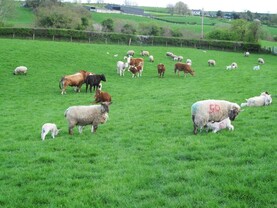TB levels continue to flatline in 2019, according to third-quarter statistics just published by the Department of Agriculture.
For the first nine months of 2019, the number of reactors was down by 7% to 12,275 head.
The number of reactors per 1,000 tests was likewise down from 2.02 in 2018 to 1.66 now.
The Department of Agriculture said that while herd incidence was at historically low levels, current trends suggest it will increase for the full year
Herd incidence was marginally up at 3.46%, compared to 3.29% a year earlier.
In a comment, the Department of Agriculture said that while herd incidence was at historically low levels, current trends suggest it will increase for the full year 2019.
If so, that would be the third consecutive year of increase. That, it said, would highlight the importance of renewed efforts to eradicate the disease.
Fall in reactor numbers
It said the fall in reactor numbers was welcome but “it is too early to draw any definitive conclusions on this reduction at this stage”.
High impact TB management plans are in operation for counties Monaghan and parts of Clare due to high herd incidence. Herd incidence and reactor numbers in Monaghan were both down in the first nine months of 2019 on a year earlier.
The Department said that Minister for Agriculture Michael Creed was due to soon publish a new strategy for a 10-year plan for eradicating TB, which would take into account the recommendations of the TB forum.
The existing scheme is already deficient and new measures would make this worse
IFA animal health chair Pat Farrell welcomed the drop in reactors to date in 2019.
He warned Minister Creed against now trying to ram through additional control measures on farmers without addressing the issue of farmer compensation.
“The existing scheme is already deficient and new measures would make this worse,” he said.
He has proposed adjustments which he has costed at €4m to €5m per annum.
“Funding of this could be examined by an independent cost/benefit analysis,” he said.
IFA will not take part in planned discussions on governance of the scheme until compensation is progressed, he said.






 This is a subscriber-only article
This is a subscriber-only article









SHARING OPTIONS: